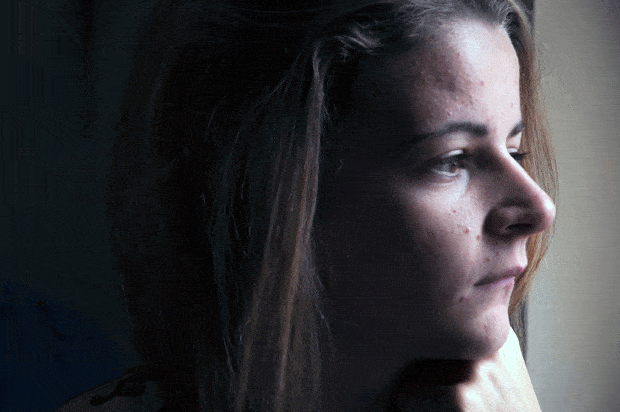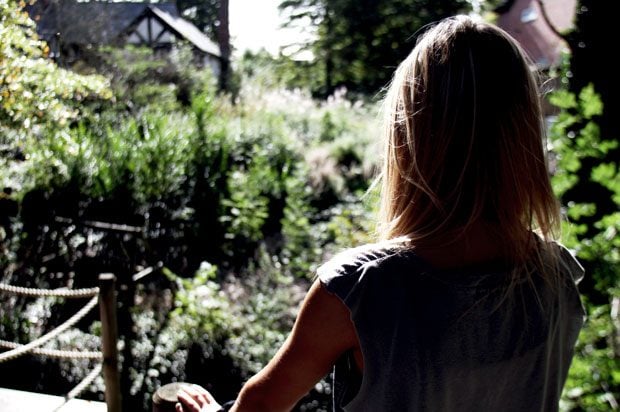Will my depression come back?
Recovering from depression can be a long and painful process, so what if it comes back? Is there anything you can do to prevent a relapse? We ask Helen Cleather from SANE.

There are things you can do to prevent a relapse.
It’s totally normal to worry your depression will come back. Nobody would want to go through that again. You may also be scared about letting people down, or your depression getting in the way of your exams, work or relationships.
We’d love to tell you to stop worrying, especially as it would be great to enjoy the recovery you’ve worked so hard for. But we also know it’s hard to just forget these concerns.
Will I relapse into depression?
You can’t know if depression will return – depression is different for different people. Some will only get it once and then never feel like that again, others will have depression for a long time, or go through periods where they’re fine and then relapse.
“It’s hard not to worry,” says Helen, “but your depression might not return, so try not to fixate.”
Life is tough. Inevitably you’re going to feel sad from time to time, but that doesn’t mean you’re relapsing. It’s OK to have down days – everybody does – a down day doesn’t necessarily mean your depression is coming back.
How can I prevent a depression relapse?
Take steps to look after your mental health. You can’t be sure you won’t relapse, but following these steps will make sure it’s not as bad as the first time.
1. Work out what your symptoms are
Try and remember the symptoms you had last time you had depression. It might be hard to remind yourself about how you used to feel, but it’ll make it easier to notice if those feelings come back.
Depression tends to come on gradually, rather than all of a sudden. So if you’re able to recognise the symptoms early on you’ve got a better chance of seeking help and stopping it getting worse.
“You can tell when you feel different,” says Helen. “Trust yourself that you do feel different.”
It’s tempting to ignore any early signs, especially if you’re scared. However, it’s a lot easier to deal with these feelings before it becomes full-blown depression again.
2. Talk to your friends and family
“Be honest with yourself and others,” says Helen. “If you’re noticing symptoms, mention it to someone you trust – then you can think together, ‘what can we do?‘”
You don’t have to cope with depression alone. A lot of people worry they’ll be letting their family and friends down if their depression returns, but you’re not. It’s easy to retreat and not want to spend time with people when you’re depressed. But do try and talk to people (early on, if possible) before it gets even harder to ask for support.
3. Remember your coping strategies
What helped you last time you had depression? What you ate? Doing exercise? Spending time with people? Recognise the things that made you feel better, and make sure you keep doing them. It’s important to continue taking care of your mental health, even if you’re not depressed at the moment.
4. Like your GP
Having a good doctor who understands depression (and you) is important, so if you really don’t like your GP you can change doctors. Do this while you’re feeling OK, so that if your depression comes back you can get the help you need.
5. Contact a mental health charity
The best people you can talk to are the people around you. But if you’re freaking out, no one’s around, or you’re too scared to talk to the people who are, you can call a helpline for a chat.
You can contact mental health charity SANE by phone 0300 304 7000 or email. And the listening-service Samaritans is available on 08457 909090, or you can email [email protected]. They won’t judge and are completely confidential.
6. Talk to other people with depression
Talking to other people who’ve been through similar experiences can really help. We have an active community of 16-25 year olds here at The Mix – look at our discussion boards to hear other’s experiences and get support. You could even help someone else out by sharing your own story.
My depression has come back – what should I do?
Don’t blame yourself. Whether it’s your family or work circumstances, a physical or chemical reason, or you have no idea why you feel down, it’s not your fault.
Relapsing doesn’t mean you’re back to square one. This time you have the advantage of knowing what’s going on. Think: what helped last time? What didn’t? Use your knowledge to your advantage.
Go to your GP and tell them how you’re feeling. Talk to them about what helped before. Was it a talking treatment? Or medication?
Go through the steps above – are you following them? Are you using your coping strategies? Are you confiding in your friends and family? Doing these things won’t make you feel better immediately, but they will help you begin to recover.
We know you wish you didn’t feel like this again, depression is horrible. But this won’t last forever. After all, you got better last time, didn’t you?
Next Steps
- SANE offers support and information to people affected by mental illness. Call their helpline on 0300 304 7000, open 4:30pm - 10:30pm every day.
- Mind offers advice and support to people with mental health problems. Their helpline runs nine to six from Monday to Friday. 0300 123 3393
- Chat about this subject on our Discussion Boards.
By
Updated on 29-Sep-2015
No featured article














